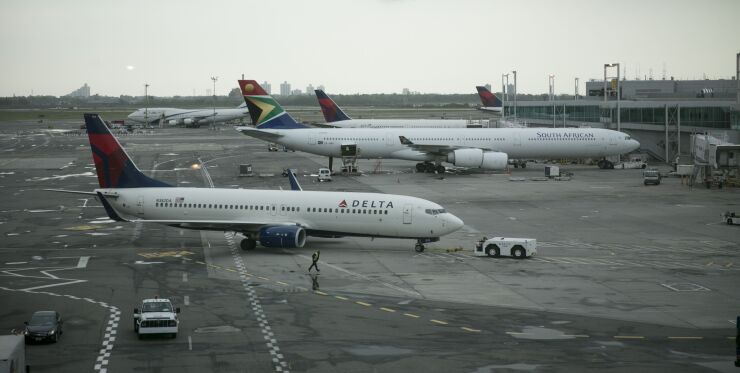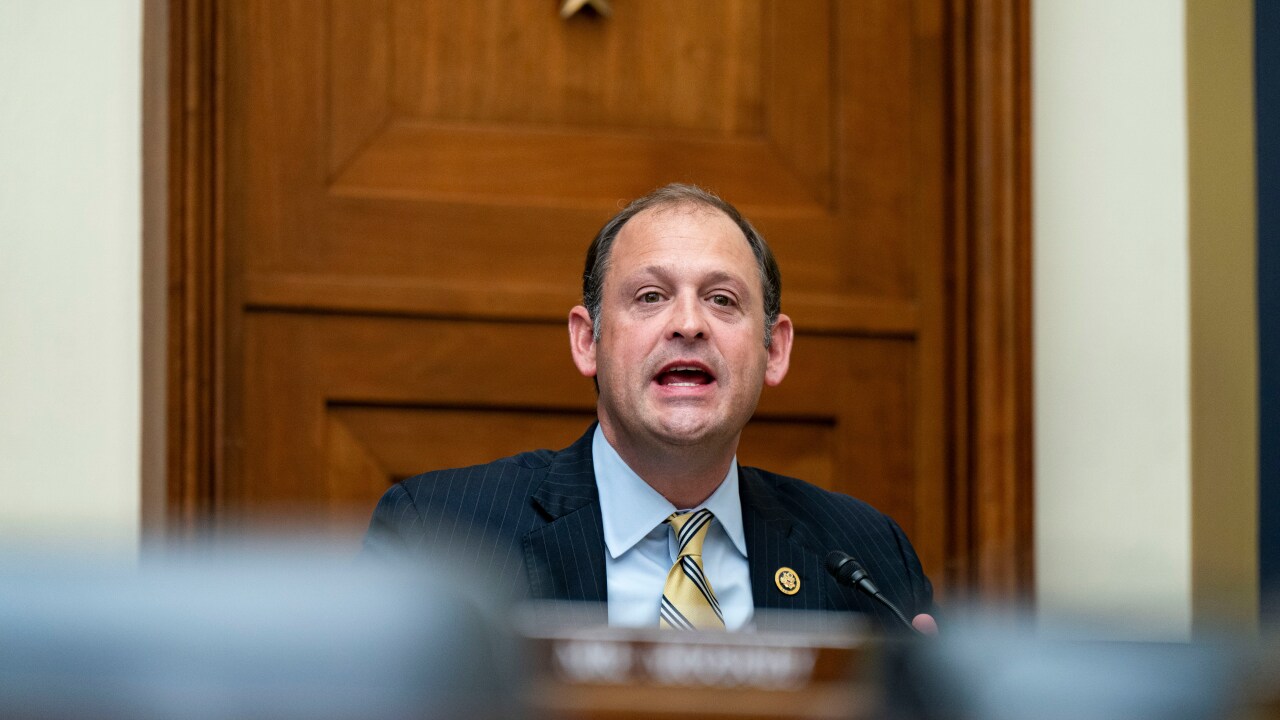A large drop in air travel stemming from the COVID-19 pandemic drove a downgrade to Port Authority of New York and New Jersey-issued bonds sold for financing an expansion of John. F. Kennedy International Airport.
S&P Global Ratings lowered the Port Authority’s senior secured series 6 and 8 special project bonds issued of behalf of JFK International Air Terminal LLC one notch to BBB from BBB-plus Thursday citing financial headwinds triggered by the virus-induced recession. S&P also assigned a negative outlook for the bonds, which affects around $1.5 billion million of outstanding debt.

The new lower S&P mark is one notch below Fitch Ratings, which rates the JFK debt at BBB-plus. Fitch placed the bonds on rating watch negative in late March.
“The downgrade reflects the significant drop in passenger volumes for the airport and our expected volumes in 2020 and beyond due to COVID-19 and our expectation of a prolonged period of reduced volumes due to the potential recession underway and the uncertain path of recovery in air travel,” S&P credit analyst Antonio L Bettinelli wrote. “We currently expect a slower recovery for passenger volumes, due to a combination of a weaker economy, lower demand, and the financially challenged airline industry.”
The Port Authority issued $934 million of the series 6 bonds for JFKIAT in 1997 to build Terminal 4, which serves as an international hub for Delta Airlines. The bi-state agency then sold $796.28 million of the series 8 bonds in 2010 to fund a $1.2 billion
The bonds are secured by a facility rental payment made by Delta to the Port Authority. JFKIAT has overall operational and management responsibility for all of Terminal 4 through 2043, which is one year past the final maturity of the existing debt.
“If the prospects of revenue from airline travel is weak you have to worry about the viability of the bonds long-term,” said Jonathan Peters, a finance professor at the College of Staten Island. “We don’t know what the end-state is going to be for the virus and when there will be a vaccine.”
Delta, which filed for chapter 11 bankruptcy in 2005, received $5.4 million in federal economic stimulus funding to help offset COVID-19-related losses. Bettinelli said the Terminal 4 facility would likely remain operational if the airline were to enter another bankruptcy or to modestly reduce operations.
S&P is forecasting that annual passenger volumes for the Terminal 4 project will be 57% lower in 2020 than a year ago and would not recover to 2019 levels until 2024. Passenger volumes are projected to gradually improve throughout the year from a 92% drop in the second quarter, to 70% in the third quarter and 50% in the fourth quarter.
Mitchell L. Moss, director of New York University’s Rudin Center for Transportation and Management, said that while the airline industry is facing a rough 12- to 18-month period, he has confidence that JFK will eventually see a return to strong passenger volumes once COVID-19 subsides. Moss said JFK might even see a long-term boost in air travel if more struggling airlines opt to consolidate their operations to major cities like New York.
“The Port Authority has a unique competitive advantage of being a major entryway to the New York City metropolitan region,” Moss said. “I have a lot of confidence in the Port Authority’s operations and that eventually people from around the world will want to travel to New York.”
The Port Authority has high issuer ratings of AA-minus from Fitch and S&P and Aa3 from Moody’s Investors Service. All three rating agencies
Bettinelli said the JFK bonds may face another downgrade if recovery in air traffic takes longer than expected or JFKIAT requires the use of a “substantial” portion of its unrestricted cash balances to cover expenses and debt service. A disruption in Delta's anchor-tenant payments could also lead to a lower rating.
The Port Authority and Delta press offices did not immediately respond for comment on the S&P downgrade.





